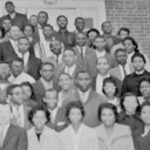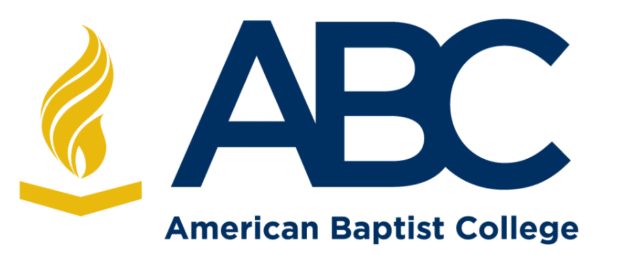1913
 The idea of a seminary for the training of Black Baptist members was formed out of a conversation between leaders of the all-Black National Baptist Convention, USA, Inc., and the all-White Southern Baptist Convention. The committees of both conventions met and recommended the following year that the school be established in Memphis, Tennessee. It was later decided to establish the school in Nashville.
The idea of a seminary for the training of Black Baptist members was formed out of a conversation between leaders of the all-Black National Baptist Convention, USA, Inc., and the all-White Southern Baptist Convention. The committees of both conventions met and recommended the following year that the school be established in Memphis, Tennessee. It was later decided to establish the school in Nashville.
1921
The present 53-acre site was purchased.
1923
The first building, Griggs Hall, was erected and housed dormitory rooms, classrooms, a library, and a dining hall.
1924
American Baptist Theological Seminary opened its doors for the training of Christian workers on September 14, 1924. William T. Aminger served as acting president.
1925
Sutton Griggs served as president through 1926. William T. Aminger assumed the presidency for a second time from 1926-1930.
1930
James H. Garnett served as acting president through 1932.
1932
Roy Mayfield served as president through 1936.
1936
James M. Nabrit served as president through 1944.
1936
Missionary training school for women placed next door…
1937
The Southern Baptist Convention and the National Baptist Convention, USA, Inc. agreed to share 50/50 in the operation of the school.
1944
Ralph W. Riley served as president through 1956.
1947
The J.B. Lawrence Administration Building (today known as the Flakes Administration Building) was built.
1954
The T.L. Holcomb Library (known today as the Susie McClure Library) was built.
1956
Victor Glass served as president through 1957.
1957
Maynard Turner served as president through 1963.
1957
ABTS and Missionary Training School for women merged
1958
The inaugural Garnett-Nabrit Lectures, an annual campus event bringing together alumni and others to uplift, uphold, and provide significant contributions to the College and the church by bridging academic theology with justice activism, took place.
1960's
The College has educated Civil Rights champions, national leaders and outstanding Christian ministers. The school’s history during the 1960’s and 1970’s was lively with cultivating civil rights champions, national leaders and outstanding Christian ministers. Students from American Baptist College, such as Julius Scruggs, Bernard Lafayette, Jim Bevels, William Barbee and John Lewis served on the front line of the Nashville Student Sit-In movement for justice and change. Under the tutelage of then Professor J.F. Grimmett, the late the Rev. Kelly Miller Smith, and Rev Dr. C.T. Vivian, many of our students dared to sit down at lunch counters dramatically altering the quality of life for Americans living in the South. They sat, marched, and persevered through arrests and beatings before they were victorious in pursuit of justice and human rights. The campus itself was a popular command post for organizing and training students for social justice causes throughout the city at the time. American Baptist College can boast that a number of its students from that period have gone on to become major names in civil rights history and American politics (e.g., Congressman John Lewis, Dr. Bernard Lafayette, Dr. Julius Scruggs).
1963
Charles E. Boddie served as president through 1980.
1971
The school earned accreditation from the Association of Biblical Higher Education and its official name was changed to American Baptist College.
1980
Odell McGlothian served as president through 1992.
1992
Bernard Lafayette served as president through 1999.
1999
Forrest E. Harris Sr. named as president.
2005
The Lewis-Scruggs Conference Center was opened and named in honor of alumni John Lewis (U.S. Representative from Georgia) and Rev. Dr. Julius R. Scruggs (pastor, Board of Trustees member, and leader in the National Baptist Convention, USA, Inc.)
2013
American Baptist College was recognized by the U.S. Department of Education as one of the nation’s Historically Black Colleges & Universities (HBCUs).
2013
The American Baptist Theological Seminary Historic District was listed on the National Register of Historic Places.
2019
The College launched the S.E.A.L. (Social Justice, Equity, Advocacy, and Leadership), an initiative that uses an interdisciplinary approach to weave applied scholarship, biblical liberation ethics, and theology to achieve justice outcomes for the well-being of oppressed communities.
2024
American Baptist College commemorates a century of providing Christian higher education.

